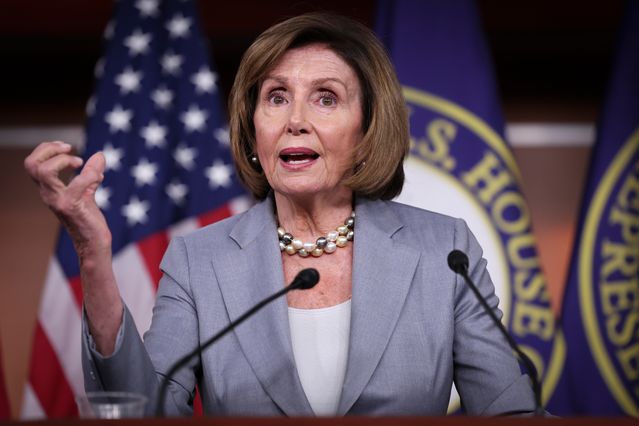“‘And after first signaling her opposition to these reforms, the Speaker purportedly reversed her position. However, our bipartisan reform coalition was then subjected to repeated delay tactics, hand-waving gestures, and blatant instances of Lucy pulling the football.’”
Those lines above came Friday in a news release from Democratic Rep. Abigail Spanberger, as she expressed frustration with the U.S. House’s Democratic leadership for not holding a vote on the issue of banning congressional stock trading.
Spanberger, a Virginia Democrat in a tough midterm race, is viewed by analysts as having a bipartisan image thanks in part to her work with Texas Republican Rep. Chip Roy on their bill that would prohibit lawmakers from buying and selling individual stocks.
She and Roy are among a range of Democrats and Republicans in the House and Senate who have introduced measures aimed at ending congressional trading in an effort to limit conflicts of interests and boost trust in the federal government.
Top House Democrats offered their proposal on the issue this month, but watchdogs criticized it for including a ban on trading for Supreme Court justices, as that provision could serve as a poison pill — as well as for its language that would allow for “fake” blind trusts.
The chamber’s Democratic leadership then indicated on Thursday that there won’t be a vote on stock trading before the midterm elections on Nov. 8. The Senate already hadn’t been expected to act on the issue before the midterms.
House lawmakers were voting on a few other measures on Friday, including one preventing a partial government shutdown, and then they were scheduled to be away from Washington, D.C., until mid-November.

Rep. Abigail Spanberger (far right) speaks on banning stock trades for members of Congress at a news conference in April.
Getty Images
“This moment marks a failure of House leadership — and it’s yet another example of why I believe that the Democratic Party needs new leaders in the halls of Capitol Hill, as I have long made known,” Spanberger said in her release, referring in part to how she hasn’t voted for Pelosi to be House speaker.
“Rather than bring Members of Congress together who are passionate about this issue, leadership chose to ignore these voices, push them aside, and look for new ways they could string the media and the public along — and evade public criticism,” she said.
“As part of their diversionary tactics, the House Administration Committee was tasked with creating a new piece of legislation — and they ultimately introduced a kitchen-sink package that they knew would immediately crash upon arrival, with only days remaining before the end of the legislative session and no time to fix it.”
When asked about Spanberger’s criticism, Pelosi said the House Administration Committee took the Virginia congresswoman’s measure and combined it with “others that made the bill stronger, as a matter of fact. So this is an interesting press release, but it’s more important to write a bill.”
The speaker also suggested lawmakers are still working on making sure they “have the votes.”
“We’ll see. We’ll work at it,” she said told reporters during her weekly news conference. “I think we should have legislation. There are others who have spoken out against the bill. And again, this is the legislative process.”
In December, Pelosi defended stock trading by lawmakers and their spouses, but then in January reversed herself to some extent, asking the House committee to look into a possible ban. In 2021, the California Democrat ranked as the eighth-biggest trader among Congress’s more than 500 members, with an estimated $12 million in buys and no sells, according to a MarketWatch report in January.

House Speaker Nancy Pelosi answers questions during a news conference on Sept. 14.
Getty Images
That report revealed how Congress resembled a Wall Street trading desk in 2021, with lawmakers and their family members making an estimated total of $355 million in stock trades as the market
SPX,
DJIA,
soared during that year.
Critics of the bills to ban congressional stock trading say they’re going too far, and that current laws already require regular disclosures and don’t allow trading on inside information. They’ve also argued that a prohibition would discourage qualified people from running for office, and they’ve maintained that Americans may want members of Congress to understand what it’s like to invest in individual stocks.
